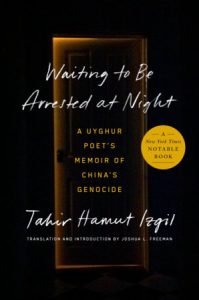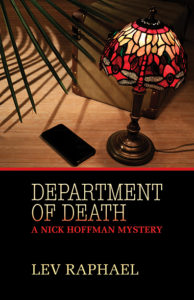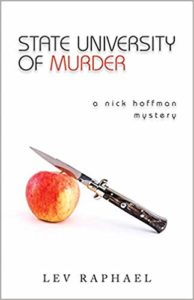Over more than a decade, the Chinese government has been grossly persecuting Muslims in the western region of Xianjiang. An officially-recognized ethnic minority of between 11-13 million people, the Uyghurs speak a Turkic language. As second-class citizens, they have seen their lives grow more tenuous, constricted, desolate and desperate as the Chinese have spun ugly new twists on the Nazi persecution of Jews and Soviet-style surveillance.
Supposedly protecting China from terrorists, Chinese persecution has involved demeaning the Uyghurs as less than human; endless interrogations over things as minor as speaking to someone abroad on the phone–and even arresting those people; denying them passports; arresting and “disappearing” people who have passports; seizing anything related to Islam like Korans, Islamic books, and prayer rugs; forcing people to change their Muslim names and expensively register the change in newspapers; arbitrarily arresting and detaining a million people in slave labor camps. Uyghurs have even been forced to renounce Islam and praise Communism in word and song. And they have to pay for the installation of state surveillance cameras on their apartment buildings.
People just disappear, and family and friends don’t know where they are or if they’re even alive. Torture has been employed against Uyghurs in prisons and camps, and so is forced sterilization of some women. The aim is to terrorize this population and destroy their culture. The oppression extends beyond their region: Uyghurs who have come to Beijing for any number of reasons cannot stay in ordinary Chinese hotels but are ghettoized in Uyghur hotels.
Much of this is detailed soberly but powerfully by renowned Uyghur poet Tahir Hamut Izgil in his memoir Waiting to Be Arrested at Night. In his devastating short book he details his three-year imprisonment after trying to travel outside of China, along with endless interviews and bureaucracy that go beyond Kafkaesque. Chinese surveillance of its people who all have ID cards is highly sophisticated, strict, far-reaching, and inexorable. And the Uyghurs aren’t just spied on, they’re fingerprinted, forced to give blood samples, and photographed extensively via computers for facial advanced recognition.
The author tells the stories of friends who almost died trying to get to freedom in the West and his own attempts to escape China with his family are heartbreaking, the stuff of a thriller. Luckily, he made it out.
In one of the most haunting passages, he and his wife are interrogated in a basement office where they pass by prison cells, bloodstained floors, and a chair with straps meant to immobilize people being tortured. Waiting anxiously to be summoned downstairs, they had heard a man crying out in pain–until a steel door to the stairs was shut by police.
Many colleges and universities around the U.S. seem to think that they should be making foreign policy declarations even though their central mission is education. Given that drive and the uproar about the war in Gaza, it’s shocking that when it comes to China, Muslims there do not seem to count despite their horrendous suffering–and the fact that the U.S. has declared what is happened in China to be genocide.
Michigan State University is a sad example with its furious meetings about the war in Gaza. Whatever lies behind student and faculty silence about the Uyghurs, the institutional silence could be due to the fact that MSU has long-standing and apparently remunerative ties with China. You have to wonder if other universities have similar reasons for shamefully ignoring the truth. ★★★★★
Lev Raphael is a former book reviewer for The Detroit Free Press and has also reviewed for The Washington Post and several public radio stations in Michigan.







